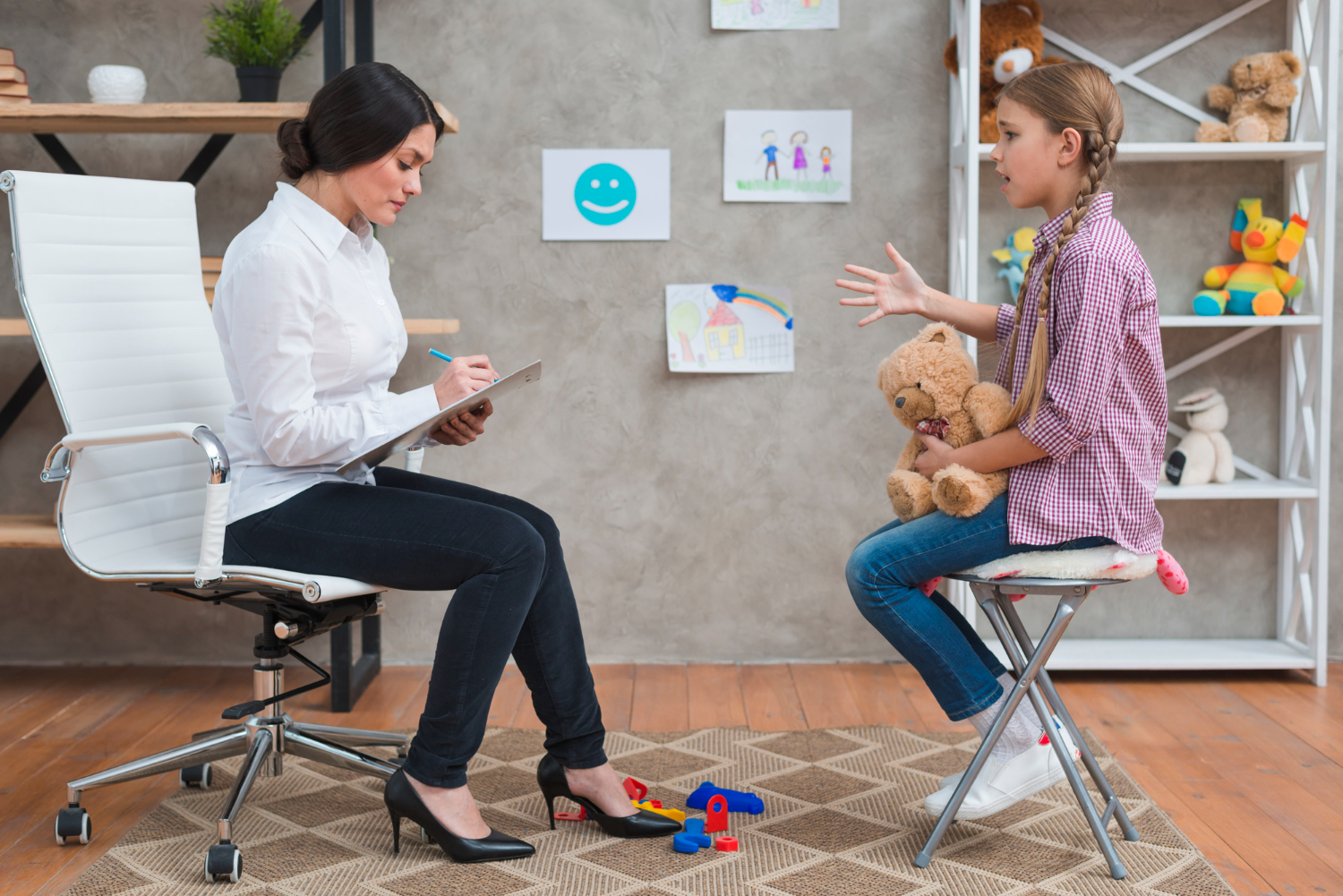
Understanding Echolalia in Autism: What It Means
Learn what echolalia means in autism, why children repeat words or phrases, and how ABA therapy helps develop meaningful communication skills.
Echolalia is when a person repeats words, phrases, or sounds they’ve heard before. It’s a common behavior in children with autism, and while it might seem unusual, it often serves an important purpose. Echolalia can actually be a step toward learning how to communicate and express feelings.
What is Echolalia?
Echolalia means “echoing speech.” A child might repeat something they just heard (“Do you want juice?” “Do you want juice?”) or something they heard earlier (“Let’s go to the park!” hours after hearing it).
There are two main types of echolalia:
- Immediate echolalia: Repeating words right after hearing them.
- Delayed echolalia: Repeating phrases from earlier times — like a line from a TV show or a parent’s sentence.
Why Does Echolalia Happen?
For many children with autism, echolalia helps with:
- Communication: It can be a way to respond when they don’t yet have their own words.
- Understanding language: Repetition helps process and learn new phrases.
- Comfort and routine: Familiar sounds can be calming in stressful or uncertain situations.
So while it may look repetitive, echolalia often shows that a child wants to connect — they just express it differently.
Supporting a Child Who Uses Echolalia
Encouragement and gentle guidance make a big difference. Try:
- Modeling clear, simple language
- Giving time for responses
- Using visual supports or cues
- Working with a speech or ABA therapist
Recognizing echolalia as part of language development helps parents respond with understanding instead of concern.
At Milestone Achievements ABA, our therapists use personalized ABA strategies to help children build meaningful communication skills, reduce frustration, and find their voice with confidence.
If you’re looking for compassionate and effective ABA therapy in Georgia, we invite you to connect with our team today. Let’s work together to help your child reach new milestones—one step, one smile, and one success at a time.
Sources:
- https://my.clevelandclinic.org/health/symptoms/echolalia
- https://www.webmd.com/parenting/what-is-echolalia
- https://link.springer.com/article/10.1007/s40474-024-00311-0
- https://www.ncbi.nlm.nih.gov/books/NBK565908/
- https://www.healthline.com/health/echolalia


Partner with us on your child's journey
Milestone Achievements offers evidence-based ABA therapy to help children with autism reach their full potential. Together we’ll set meaningful goals and celebrate progress every step of the way.
Start ABA Services TodayFrequently Asked Questions (FAQs)
Is echolalia always a sign of autism?
Not always. Many young children repeat words as they learn to talk, but in autism, echolalia tends to last longer or be more frequent.
Can echolalia be functional?
Yes! It often helps children express needs or emotions when they don’t have other words yet.
Does echolalia go away with therapy?
With the right support, many children learn to use more spontaneous language over time.
Can ABA therapy help with echolalia?
Absolutely. ABA therapy helps children build communication and comprehension skills, reducing reliance on repetition while promoting meaningful speech.






